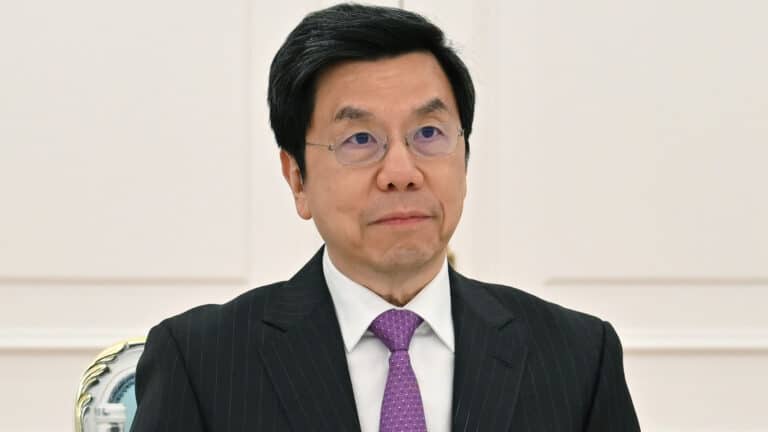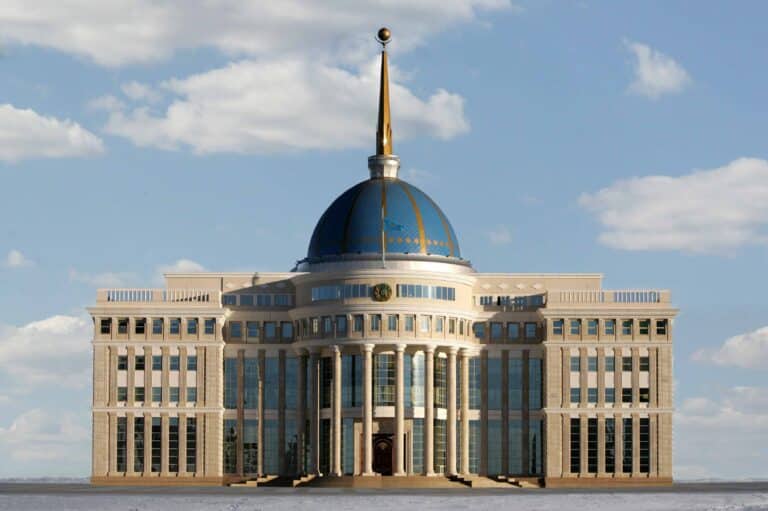
Kazakhstan’s Ministry of Digital Development stated that within the next 10 to 15 years, Central Eurasian countries — Kazakhstan, Uzbekistan, Kyrgyzstan, Turkmenistan, Tajikistan, Azerbaijan, Turkey, Georgia and Mongolia — will each have a company worth more than $1 billion entering the global market.
«Organizers of the first Central Eurasia @ Silicon Valley Tech Conference projected that unicorn companies — tech giants valued at over $1 billion with global reach — will emerge within the next 10 to 15 years across Central Eurasia, in countries such as Kazakhstan, Uzbekistan, Kyrgyzstan, Turkmenistan, Tajikistan, Azerbaijan, Turkey, Georgia and Mongolia,» the ministry said in a statement.
The event took place in a location that is iconic for Silicon Valley: the Yerba Buena Arts Center, the hall where Steve Jobs himself presented the first iPhone and iPad. The conference united the top 100 startups, Eurasian entrepreneurs, American venture investors, managers of large companies, representatives of Silicon Valley’s tech giants, students and professors from the leading U.S. universities, among others.
The conference drew much interest, attracting 1,500 participants and 50 active speakers, including senior officials of Kazakhstan, Uzbekistan and Azerbaijan, Coursera CEO Jeff Maggioncalda, and Founder and Partner of Unshackled Ventures Nitin Pachisia. Other experts included Ilya Strebulaev, a professor at Stanford Graduate School of Business and professors at the University of California, Berkeley.
«The event organizers believe that Central Eurasia is a prosperous region with untapped potential. On average, around 200,000 people earn degrees in science, technology, engineering and mathematics (STEM) each year, out of a total population of approximately 100 million within the region,» the ministry highlighted.
Universities, startup ecosystems, venture funds and representatives from the Silkroad Innovation Hub in Silicon Valley are some of the tools at the region’s disposal to boost tech industry development. In just over a year, the hub attracted 80 startups in residence that drew more than $30 million in investments.
Zhaslan Madiyev, Kazakhstan’s minister of digital development, pointed out that 50% of the Central Eurasian aggregate GDP comes from Kazakhstan. The republic also ranks 10th in the UN Global Online Services Index and third in the Global Innovation Index among the Central and South Asian states, following Iran and India. The minister cited Astana Hub as an example, an organization preferred by decacorns — startups with a capitalization exceeding $10 billion — and unicorns — with a capitalization of more than $1 billion — as a regional office. For instance, Telegram, Epam and inDrive have established their regional offices there.
Madiyev also mentioned other digital industry-related initiatives suggested by Kazakhstan’s government, such as the Digital Nomad visa option and accessible internet. He also said the next big program planned for 2024 — 2029 will focus on artificial intelligence (AI) development for public agencies and the Alem.Ai national center establishment.
«New technologies have recently emerged dramatically, with notable examples including AI, blockchain and game development. This dynamic environment stimulates the market and encourages entrepreneurs to establish startups. Everyone sees successful outcomes when startups thrive, attract venture capital financing, go public through an initial public offering (IPO) and grow into multibillion-dollar companies. I view this as a continuous source of motivation for entrepreneurs,» he said.
Discussing obstacles Kazakhstani entrepreneurs have to deal with, Madiyev explained that local investors are willing to invest between $100,000 and $200,000 in the early stages, but when it comes to the late stages, it might be challenging for them to find $1 to $2 million in investments. Hence, he thinks it’s vital to promote Kazakhstani startups abroad, targeting the U.S. in particular.
«We believe that truly large global unicorn startups are going to appear in Central Eurasia soon,» Madiyev said.
Asset Abdualiyev, the founder of the Silkroad Innovation Hub, noted that the rise of the startup ecosystem in the entire region is evident, even though it is not yet as developed as in other countries.
«Our conference has served a purpose to present and spotlight these future founders of Silicon Valley. The United States is the largest market and I urge our fellow entrepreneurs not to be afraid to enter the global markets,» Abdualiyev said.
The Central Eurasia @ Silicon Valley technology conference was held with the support of Freedom Holding in partnership with Astana Hub and IT Park Uzbekistan. Additionally, Arsen Tomsky, the founder of inDrive, served as a partner for the event.
Silkroad Innovation Hub was established in 2023 in Palo Alto, U.S., by two entrepreneurs from Central Asia — Asset Abdualiyev from Kazakhstan and Asror Arabjanov from Uzbekistan. The organization supports startups and entrepreneurs from Central Eurasia in finding ways to establish or expand their businesses in Silicon Valley and access the U.S. market.













